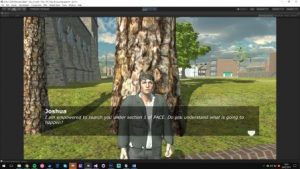The following is a snap-shot of funding opportunities that have been announced. Please follow the links for more information:
Medical Research Council, GB
*** The closing date for this opportunity has been extended. The previous deadline of 10 March has been extended to 17 March 2017. All other call details remain unchanged. This grant supports the production of genetically modified mouse lines that advance knowledge of human disease or are of widespread use in biomedical science. ***
Maximum award: Not known
Closing date: 17 Mar 17 Closing soon
Medical Research Council, GB
This enables UK researchers to meet researchers from from Thai institutions and explore opportunities for research collaboration in Bangkok between 17 May and 19 May 2017. The grant covers costs for the UK attendees.
Maximum award: Not known
Closing date: 21 Mar 17 Closing soon
Natural Environment Research Council, GB
The scoping group will develop the science case for a potential strategic research programme on enhancing resilience of UK peatlands. NERC will cover all reasonable travel and subsistence costs associated with attending the scoping group meeting.
Maximum award: Not known
Closing date: 23 Mar 17 Closing soon
Engineering and Physical Sciences Research Council, GB
This supports internationally leading programmes of research, centred around innovative healthcare technologies, to tackle the challenges faced by developing countries. The total budget is worth £7.5 million, and six to eight projects will be funded.
Maximum award: Not known
Closing date: 20 Apr 17
Economic and Social Research Council, GB
This enables PhD candidates to undertake research to inform the strategy and practice of Innovate UK and the ESRC.
Maximum award: Not known
Closing date: 20 Apr 17
Natural Environment Research Council, GB
This aims to improve the impact from NERC science within national resilience policy making, and enable the Civil Contingencies Secretariat to be a better user of science and better able to showcase the value of science in policy. The fellowship is paid at 80 per cent full economic costs, and will be for a two-year period initially, with a possibility of extension.
Maximum award: Not known
Closing date: 27 Apr 17
Natural Environment Research Council, GB
This aims to foster collaborations between the insurance and reinsurance industry and academia to accelerate the uptake and impact of environmental science. The fellowship is paid at 80 per cent full economic cost, and financial support includes but is not limited to travel and subsistence, and events such as workshops, seminars, open days or user training.
Maximum award: Not known
Closing date: 27 Apr 17
Natural Environment Research Council, GB
This provides logistic support for Antarctic fieldwork including the use of British Antarctic Survey infrastructure.
Maximum award: Not known
Closing date: 28 Apr 17
Economic and Social Research Council, GB
This supports the development of critical and innovative approaches to ongoing and emerging methodological debates across a range of approaches, both qualitative and quantitative, including mixed and comparative methods, as these relate to philosophical, theoretical, ethical, political and practice issues. £3,500 is available and covers costs of room and equipment hire, hospitality, consumables and travel for speakers.
Maximum award: £3,500
Closing date: 30 Apr 17
Natural Environment Research Council, GB
These enable research organisations to collaborate with business, policy bodies and other actors that contribute to the economic development specific to their location, in order to deliver significant regional impact from NERC environmental science. The total budget is worth between £2.5 million and £4m over a period of four years.
Maximum award: Not known
Closing date: 22 Jun 17
Natural Environment Research Council, GB
This promotes collaboration between the research community and the end users of research. Each studentship is worth up to £84,392 over maximum 4 years.
Maximum award: £84,392
Closing date: 06 Jul 17 (recurring)
Medical Research Council, GB
*** This opportunity will be available soon. The next call is expected to open shortly. The following information is subject to change. This supports research on infectious diseases of relevance to Thailand and the Thai population. Projects are tenable for three years. ***
Maximum award: Not known
Closing date: Not known
Medical Research Council, GB
*** This opportunity will be available soon. The next call is expected to open shortly. The following information is subject to change. This supports research on non-communicable diseases of relevance to Thailand and the Thai population. Projects are tenable for three years. ***
Maximum award: Not known
Closing date: Not known
Motor Neurone Disease Association, GB
These provide support to laboratory based studies in the field of motor neurone disease. Funding provides support for four years.
Maximum award: Not known
Closing date: 05 Apr 17 (recurring)
Motor Neurone Disease Association, GB
These support clinical researchers wishing to pursue research into the pathogenesis and treatment of motor neurone disease. Funding provides support for five years.
Maximum award: Not known
Closing date: 05 Apr 17 (recurring)
Royal College of Radiologists, GB
*** This opportunity will be available soon. The next call is expected to open in January 2018. The following information is subject to change. This professorship enables a fellow to undertake six to eight visits to training programmes to deliver lectures, and undertake appropriate workshops or small group teaching, with the aim to foster high quality breast imaging throughout the UK. The professorship is worth up to £10,000 over one year. ***
Maximum award: £10,000
Closing date: Not known
Search all the latest calls
If you are interested in submitting to any of the above calls you must contact your RKEO Funding Development Officer with adequate notice before the deadline.
For more funding opportunities that are most relevant to you, you can set up your own personalised alerts on Research Professional. If you need help setting these up, just ask your School’s/Faculty’s Funding Development Officer in RKEO or view the recent blog post here.
If thinking of applying, why not add notification of your interest on Research Professional’s record of the bid so that BU colleagues can see your intention to bid and contact you to collaborate.
 Professor Heather Hartwell will be delivering a workshop on April 27th 2017 that will help participants gain insight into how it is possible to build resilience in the area of Research and Knowledge Exchange.
Professor Heather Hartwell will be delivering a workshop on April 27th 2017 that will help participants gain insight into how it is possible to build resilience in the area of Research and Knowledge Exchange.












 The call for participants for the 2017 ESRC Festival of Social Sciences will be opening on 29th March. The festival this year is taking place from the 4th to the 11th of November with events taking place across the BU Campus and in the local area. We will be looking for applications from social sciences researchers to run workshops/exhibitions/lectures/activities (we’re open to ideas) open for attendance for the wider public.
The call for participants for the 2017 ESRC Festival of Social Sciences will be opening on 29th March. The festival this year is taking place from the 4th to the 11th of November with events taking place across the BU Campus and in the local area. We will be looking for applications from social sciences researchers to run workshops/exhibitions/lectures/activities (we’re open to ideas) open for attendance for the wider public.
 Share your research over a pint!
Share your research over a pint!










 Expand Your Impact: Collaboration and Networking Workshops for Researchers
Expand Your Impact: Collaboration and Networking Workshops for Researchers Visiting Prof. Sujan Marahatta presenting at BU
Visiting Prof. Sujan Marahatta presenting at BU 3C Event: Research Culture, Community & Can you Guess Who? Thursday 26 March 1-2pm
3C Event: Research Culture, Community & Can you Guess Who? Thursday 26 March 1-2pm UKCGE Recognised Research Supervision Programme: Deadline Approaching
UKCGE Recognised Research Supervision Programme: Deadline Approaching ECR Funding Open Call: Research Culture & Community Grant – Apply now
ECR Funding Open Call: Research Culture & Community Grant – Apply now ECR Funding Open Call: Research Culture & Community Grant – Application Deadline Friday 12 December
ECR Funding Open Call: Research Culture & Community Grant – Application Deadline Friday 12 December MSCA Postdoctoral Fellowships 2025 Call
MSCA Postdoctoral Fellowships 2025 Call ERC Advanced Grant 2025 Webinar
ERC Advanced Grant 2025 Webinar Update on UKRO services
Update on UKRO services European research project exploring use of ‘virtual twins’ to better manage metabolic associated fatty liver disease
European research project exploring use of ‘virtual twins’ to better manage metabolic associated fatty liver disease